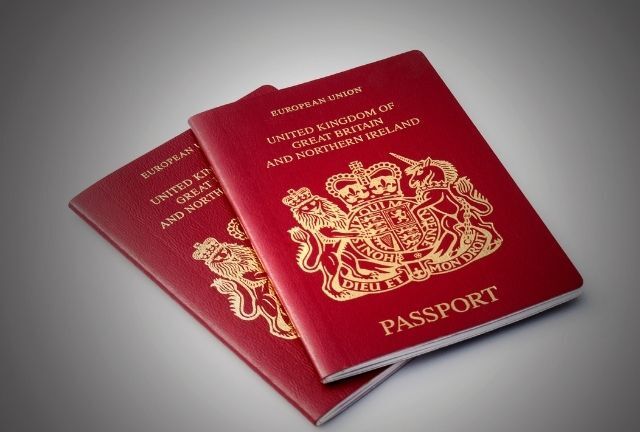Fraud and Breach of Trust Offenses in the UAE
09 May 2018
By Imad Kassir , Managing Partner & Samer Abou Said , Counsel, The Firm
Introduction:
Fraud and breach of trust, in this article, refer to the offenses of fraud, embezzlement of immoveable property as defined in articles 399 and 404 of the UAE Federal Law No. 8 for year 1980 with its amendments (“Penal Code”). Third parties may be joint-venture partners, suppliers, vendors, sub-contractors and agents.
The UK’s Financial Conduct Authority (FCA) estimates that such offenses cost the world economy more than $2 trillion a year. Hence the focus on curbing it has increased world-wide. The UAE, being the regional financial and commercial hub, has also upgraded its laws dealing with white collar crimes in particular tightening inter-alia the provisions applicable to money laundring and bribery in the public and private sectors.
Nevertheless, in the UAE where expatriates constitute more than 80 % of the work force, perpetrators from the expatriates’ community who commit a financial crime usually consider retiring back on hefty proceeds in the safe haven of their original home countries in particular where extradition to the UAE is complicated and involve considerable legal fees.
Our experience with corporate fraud and embezzlement (hereinafter “CFE”) keeps the procurement, marketing and sales departments of companies as the highest in terms of occurrences of such crimes. A probable cause for the vulnerability of these departments is their decentralized organization and daily exposure and dealing with third parties, be it suppliers, vendors, agents or clients…etc.
Modus Operandi
CFE usually involves a corporate employee carrying out certain actions to siphon illegal proceeds for the employee’s own benefit and interest. Due to the increasing robustness of compliance and internal auditing in corporations, CFE is much harder to be committed internally i.e solely by employees of the victim company.
Owing to this fact, the involvement of external parties has become more common for perpetrators to escape the internal auditing and compliance measures of their companies. External parties may not necessarily share the same compliance and ethics culture as those of the victim companies, or they may not know the bad intentions of the employee.
For example, a sales representative may commit bridge invoicing by selling products of the company to a purchaser other than the one whose name appears on the invoice handed over to the victim company. The real purchaser buys the products, does not request an invoice, and he does not know of the intentions of the perpetrator. The victim company will discover the crime after unpaid invoices accumulate. By that time, the perpetrator may have committed several bridge invoicing actions and left the company.
Fraud and embezzlement: what are the differences?
The terms fraud and embezzlement are used many times confused and used interchangeably. While, the two terms imply a certain dishonesty in depriving someone of his property, however they differ in the eyes of the law as we note below.
Article 399 of the Penal Code provides that fraud occurs if a person
“ seizes, for him/herself or another, a movable property, or obtains a document or signature thereon, cancellation or destruction thereof or amendments thereto by fraudulent means, or by assuming a false name or capacity, where such an act deceives the victim and leads to hand over the property.”
Article 404 of the Penal Code classifies embezzlement under the category of breach of trust crimes. A breach of trust occurs if a person
“ embezzles, uses or dissipates money, documents or any other movable property with the intention of causing harm to its rights owners when such money or property has been handed over to that person by way of deposit, rent, pledge, loan for use or agency.
In application of this provision, the partner in a joint property, the unauthorized agent actions regarding the principal’s property, and whoever receives anything to use in a certain manner for the benefit of its owner or for the benefit of another, shall be considered as an agent”
Fraud and embezzlement are similar in that they both require the perpetrator to have the intention and full knowledge to commit the offense (or the ‘ mens rea ’), and they imply dishonesty on the part of the perpetrator.
The main difference is that fraud requires that the perpetrator to acquire the property using fraudulent means, while in embezzlement the property should have been already in the possession of the perpetrator and was handed over to him legally through one of the legal instruments mentioned above ( deposit, rent, pledge, loan for use or agency).
We provide a simple example to illustrate the difference: a financial director who orders a trasnfer of funds to her account to possess it commits embezzlement becasue she is an employee/agent of the company and is already in control of the funds. On the other hand, a perpetrator creates a fake company and poses as a supplier to the victim company, and is awarded a contract. The perpetrator/supplier receives advance payment from the victim company and disappears. The crime of the fake supplier is fraud because he had no possession or control of the property he takes away from the company. However, if that supplier was a real one who has previous dealing with the victim company, and the supplier walked away with the company`s funds, the crime would be embezzelment.
Establishing the elements of fraud needs more effort on the part of the victim who needs to show that fraudulent methods were used to deprive her/him of the property. And here lies the difficulty. The mindset of a fraudster is already aware that she/he is doing something illegal from the start of the act itself, and thus the fraudster is cautious about not leaving any evidence or trace of the wrongdoing.
The victim of embezzlement is supposed to prove that a contract (verbal/written) exists, the money was in the possession of the embezzler and is gone, and that it is the intention of the embezzler to cause damage (for example if an employee loses money in his position inadvertently there would be no criminal intention). The intention to commit the crime in the mindset of the embezzler usually takes place after the money enters into the latter’s possession. Therefore, the evidence of the existence of the contract and that the embezzler was in possession of the property which is gone is not usually difficult.
Furthermore, UAE courts have consistently pronounced that fraud offenses should contain the element of fraudulent maneuvers through the employment of material actions and external aspects that would deceive a person of an average level of intelligence. It follows that mere lies and misrepresentations committed by the fraudster do not constitute fraudulent maneuvers unless accompanied by certain material actions and external aspects. In other words, there should be a certain level of sophistication in carrying out the offense.
Examples of UAE courts view of fraudulent maneuvers
By way of example, it was found that a person who knowingly handed over a cheque without sufficient funds to buy a car from the victim had not committed a fraud offense because lies and misrepresentations are not sufficient enough to constitute an offense [1]. It appears that although the element of dishonesty might have been present in the instant case, the court saw that it was not sophisticated enough to constitute fraudulent maneuvers, in particular in the absence of any material actions or external aspects. The seller of the car had not acted with prudence by accepting a post-dated cheque and handing over the car before cashing the cheque.
In a separate case, the court found that a person who alleged owning an off-plan building registered with the land department and had presented drawings, blue prints and payment receipts for that alleged building that appeared genuine had committed fraudulent maneuvers that constitute the crime of fraud [2]. The court referred in particular to the defendant’s presenting of drawings and other documents as being external actions.
In another case, the court observed that a person who had seized a certain amount of money received from a company to invest it in a hotel had committed fraud because the perpetrator provided the victim with his company’s commercial license and made the company sign an investment agreement with his agent [3]. In the words of the court, the lies of the defendant were accompanied by material actions such as the handing over of a commercial license and involvement of a third party (the agent of the perpetrator) in signing an investment agreement.
In a case where a defendant was charged of fraud for defrauding a person in his nineties by exploiting his weak mental abilities and coaxing him to sign documents (some of which were before the notary public) that transferred the ownership of some of his assets (estimated to be hundreds of millions of dirhams), the court vindicated the defendant and reversed a conviction judgment from the court of appeal. The court found that mere representations and lies do not suffice to constitute fraud because it was not accompanied by external maneuvers or external actions that persuade the victim of its validity [4].
UAE courts view of embezzlement
Our review of a sample of a handful cases of embezzlement before UAE courts show that 75% of them involve defendants who committed embezzlement against their own employer / company. These statistics are not surprising because employees enjoy the trust of their companies and are usually in possession of the properties they embezzle. This clearly demonstrates that embezzlement poses a higher risk to corporates than fraud does.
UAE courts have consistently stated that one of the essential elements for the offense is for the property to have been handed over by one of the so-termed “trust contracts” referred to in article 403: deposit, rent, pledge, loan for use or agency.
The most common form of corporate embezzlement highlighted above is usually done by employees of the company. The UAE courts have found that employment is a form of agency and hence it falls under the ambit of the contracts mentioned in article 403.
In this respect, the court found that a partner in a company who receives money from another partner to buy medical equipment but has not used that money as intended for has committed embezzlement because he received the money as an agent and hence an agency contract tied the defendant and the victim [5]. The court added that there is no requirement for a contractual relationship to exist, but a legal basis would suffice. It follows that any act between two parties which suggests that one of them entrusted the other to do something would be enough to establish an agency relationship, and it is not necessary to have such relationship set out in writing in a document signed by both parties.
In another case, the court dismissed the defendant’s argument that the money received from the victim was by way of a loan and hence not through one of the trust contracts. The court pronounced that it has the power to classify the relationship based on the facts at hand and not merely the terms and words of the underlying documents, and found that the victim`s handing over of an amount of money to the defendant to pay for rent of certain real estate units in London was an agency contract and not a loan as the defendant had contended [6].
An off-plan developer who had received reservation payments from an investor and had not deposited the monies in a trust account as required in law no 8/2007 for Real Estate Trust Accounts had committed embezzlement [7]. In this case, although the defendant had seized the money given to buy an off-plan unit, which is similar to the case above [8]
, the offense is embezzlement and not fraud because in the case above the off-plan unit did not exist, while it had existed in this case.
Route to successful handling of fraud and embezzlement cases
Whether you are an in-house counsel, finance director or owner of a business, there are certain matters that need to be considered to ensure the desired outcomes: punishing the culprit, recovering your funds, or asserting an institutional policy, etc.
Collecting evidence
: the victim company should be keen not to alert the suspect upon discovery of suspicious behavior which may lead to the loss of evidence and weaken the case. However, in certain cases, prompt action may be required to cut losses and avoid further damage regardless of its impact on collection of evidence.
Fate of employment relationship with the suspect/employee:
the employer would have to consider what is the best action to take regarding the suspect: Should the suspect be suspended, terminated immediately or put on garden leave? It is noteworthy that UAE Labor Law provides that an employee can be terminated immediately if finally convicted of an honesty crime. Therefore, the employer has to consider the risk of unfair dismissal compensation on the one hand and the length of a trial on the other hand. Perhaps a settlement may be the most efficient route under certain circumstances and would help to recover monies.
Instructing an external lawyer: It is crucial that the external lawyer who might handle the case before the courts be brought on board as early as possible to assist in collecting evidence and to draw up the strategy regarding the next steps which may include preparing an internal investigation report and/or commissioning an external expert under the guidance of the counsel to prepare such report prior to filing a criminal complaint. It is noteworthy that UAE authorities do require on most occasions a sworn expert report that determines the financial aspects of the crime and the value of the funds lost. Furthermore, the swift action by the external lawyer would be of utmost importance to prevent the culprit from escaping the country through application for a travel ban.
Hiring a financial auditor or expert: sophisticated financial crimes do usually require special financial expertise to collect and gather the evidence. This should be done at an early stage, ideally following the instruction of an external lawyer. The choice of the financial auditor can be made in consultation with the external lawyer who will be more comfortable working with a familiar expert from previous cases.
Recovering funds
: There exists a misunderstanding that filing the criminal case is the only procedure required to recover the funds. Well…not very true! The main objective of the criminal case is to punish the culprit; however, the criminal court is not the competent court to determine the value of the funds illicitly taken by the culprit or to order the latter to refund it. The victim should file a separate civil case to order the culprit to pay back the funds. In this case, the victim would rely on the conviction of the culprit by the criminal court to assert its rights to recover the funds. Without a conviction from the court, the victim may not be able to prove fraud or embezzlement since it is the criminal court which should establish the offense.
Conclusion
Experience shows that once a fraud crime has been committed and has gone unpunished, it is likely another one will hit soon. It is important to have internal protocol and guidelines that reduce the risk of such crimes. Appointing an external lawyer experienced in criminal matters at an early stage plays a crucial role in punishing such crimes and increasing the chances of recovery.
[1] Ruling of Dubai Court of Cassation in petition no 61/2011 Criminal 03 July 2011. [2] Ruling of Dubai Court of Cassation in petition no 689/2012 Criminal 25 February 2013. [3] Ruling of Dubai Court of Cassation in petition no 474/2010 Criminal 11 October 201. [4] Ruling of Abu Dhabi Court of Cassation in petition no 80/84/90/2014 Criminal 31 March 2014. [5] Ruling of Dubai Court of Cassation in Petition no 134/2017 Criminal 06 March 2017. [6] Ruling of Dubai Court of Cassation in Petition no 575/2013 Criminal 18 November 2013. [7] Ruling of Dubai Court of Cassation in Petition no 761/2012 Criminal 29 April 2013 [8] See fn (3).
“Contents of this article are for general informational purposes only. It is not intended as professional counsel and should not be used as such.”
















